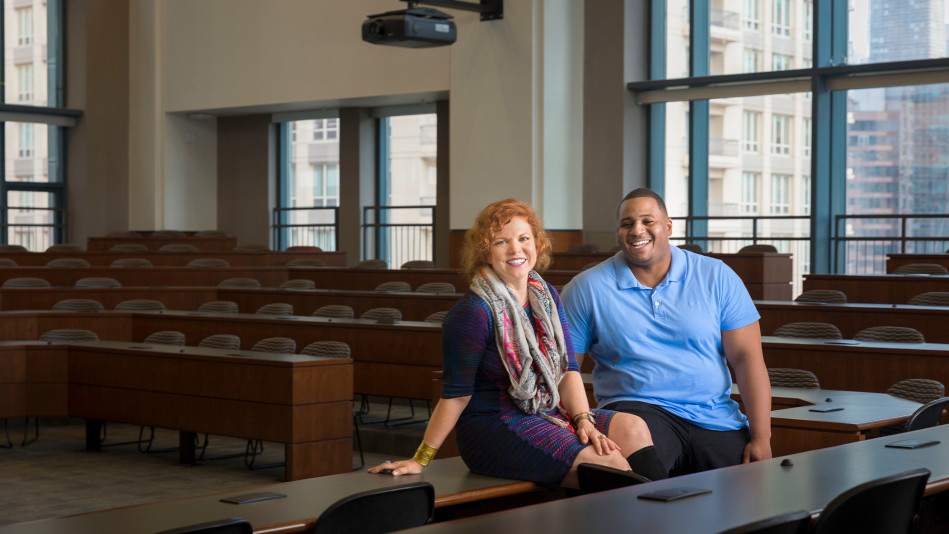This Woman Helps Exonerees Re-Enter Society
For those who've been wrongfully convicted, a novelist tries to do what's right.

Photo: Sam Comen
While writing a suspense novel in 2005, Laura Caldwell struggled with crafting one particular plot twist: Do innocent people really confess to murder? For guidance, she called an attorney friend who was defending a man named Jovan Mosley; he’d been arrested for a homicide he didn’t commit and confessed his involvement only after more than 24 hours of grueling police questioning—no food, no water, no bathroom break. Mosley was told that if he confessed, he could go home and sort things out later. Instead, he spent five and a half years in a Chicago jail, awaiting trial.
Caldwell, who was also an attorney and law professor, was so stunned, she became co-counsel (pro bono) and helped get Mosley acquitted. Then she discovered another defect in the justice system: Mosley was released with no support and nowhere to go. Ironically, had he been an ex-convict, he would have had access to halfway houses, counseling, and job training programs, but since he hadn’t committed a crime, he was on his own.
In 2009, with the support of her employer, Loyola University Chicago School of Law, Caldwell started Life After Innocence (LAI), aimed at giving exonerees much-needed relief. LAI helps them go after monetary compensation for time served and clear their criminal record. The organization has also worked to pass laws that will provide access to mental health coverage and college financial aid; since 2010, LAI has helped 55 innocent people weave themselves back into the fabric of life. “Being wrongfully accused is the ultimate horror,” says Caldwell. “We want to restore some faith in the system and, more important, some dignity and respect. Freedom’s just the beginning.”
Caldwell, who was also an attorney and law professor, was so stunned, she became co-counsel (pro bono) and helped get Mosley acquitted. Then she discovered another defect in the justice system: Mosley was released with no support and nowhere to go. Ironically, had he been an ex-convict, he would have had access to halfway houses, counseling, and job training programs, but since he hadn’t committed a crime, he was on his own.
In 2009, with the support of her employer, Loyola University Chicago School of Law, Caldwell started Life After Innocence (LAI), aimed at giving exonerees much-needed relief. LAI helps them go after monetary compensation for time served and clear their criminal record. The organization has also worked to pass laws that will provide access to mental health coverage and college financial aid; since 2010, LAI has helped 55 innocent people weave themselves back into the fabric of life. “Being wrongfully accused is the ultimate horror,” says Caldwell. “We want to restore some faith in the system and, more important, some dignity and respect. Freedom’s just the beginning.”



